In a series celebrating BD’s Architect of the Year Awards finalists, we look at the Creative Conservation Architect of the Year shortlist
Earlier this year BD announced all the architects who made it on to the shortlists for our prestigious annual Architect of the Year Awards.
Now we are shining the spotlight on each category in turn and publishing a selection of the images that impressed the judges.
This year’s judges include: Yẹmí Aládérun, head of development, Meridian Water, Enfield Council; Alexandra Andone, associate director, PRP; Amr Assaad, board director, Buckley Gray Yeoman; Lee Bennett, partner, design chair and school lead, Sheppard Robson; Sarah Cary, chief development officer Imperial College, White City Campus; Irene Craik, director, Levitt Bernstein; Alex Ely, founding director, Mae; Martyn Evans, creative director, LandsecU+I; Gavin Hale-Brown, director, Henley Halebrown; Tanvir Hasan, director emeritus, Donald Insall Associates; Lee Higson, board director, Eric Parry Architects; Nigel Hugill, chief executive, Urban & Civic; Kirsten Lees, managing partner, Grimshaw; Oliver Lowrie, director and founder, Ackroyd Lowrie; Anna Mansfield, director, Publica; Michelle McDowell, non-executive director, Civic; Ian McKnight, founding partner, Hall McKnight; John McRae, director and trustee, Orms; David Partridge, chairman, Related Argent; Sarah Robinson, asociate director, The King’s Foundation; Philippa Simpson, director for buildings and renewal, Barbican Centre; Kevin Singh, head, Manchester School of Architecture; Karl Singporewala, founder, Karl Singporewala Design Bureau; Jonathan Smales, founder and CEO, Human Nature; Elizabeth Smith, chairman and regional director, Purcell; Alan Stanton, principal director, Stanton Williams; Amin Taha, chairperson, Groupwork; Magali Thomson, project lead for placemaking, Great Ormond Street Hospital; Tatiana von Preussen, co-founder and director, vPPR; Jo Wright, director, Perkins&Will.
Today’s shortlist is for the brand new category of Creative Conservation Architect of the Year, which is being awarded for the first time.
ArkleBoyce
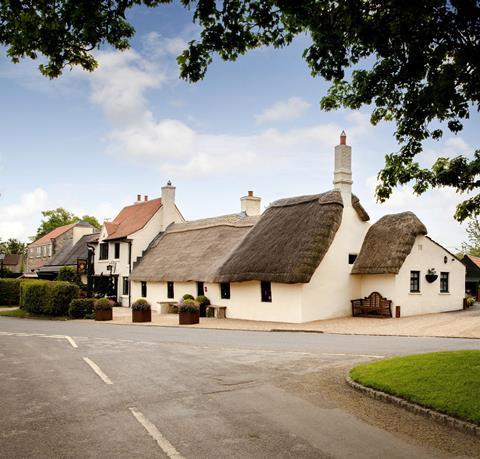
The Leeds and London practice’s entry includes the restoration of The Star Inn at Harome - a Michelin-starred thatched restaurant - and a Beaux-Arts residence in London’s Marylebone. Both demonstrate the practice’s overall approach - interrogation of a building’s history followed by a sensitive restoration that reduces harm on the host building while articulating a clear narrative between old and new. The practice collaborates with skilled craftsmen and uses traditional materials while improving environmental performance where possible.
Feilden Clegg Bradley Studios
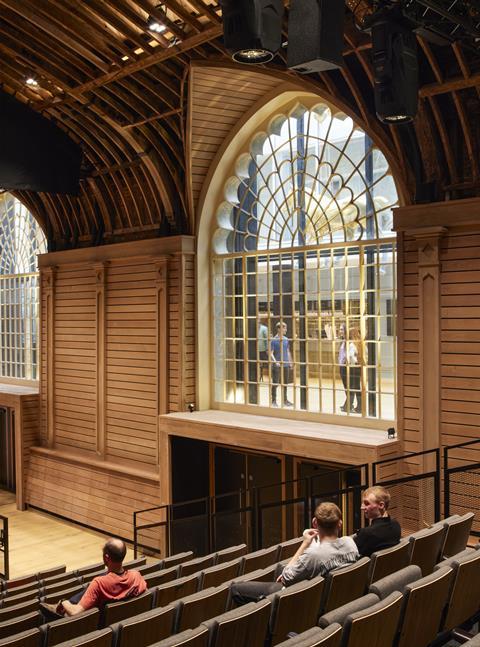
FCBStudios’ eclectic entry includes the rescue of Shrewsbury’s Flaxmill Maltings – the oldest iron-framed buildings in the world – and their transformation into a sustainable, mixed-use development. The practice has rejuvenated the 200-year old Brighton Dome Corn Exchange and Studio Theatre, and carried out extensive conservation work at Bath Abbey. The entry is completed by the Museum of Huddersfield, a Passivhaus-rated museum retrofit due to open in 2026.
Hugh Broughton Architects
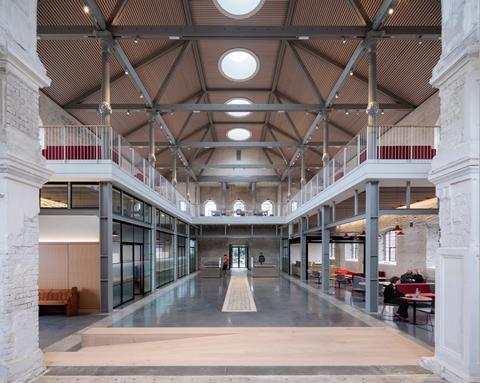
The practice’s methodology is informed by research and analysis of historical, social, cultural, and environmental context, including each site’s unique spirit of place. Two of the submitted projects are transformations of roofless ruins - Sheerness Dockyard Church, now a co-working and café space, and Clifford’s Tower in York, which has been given a new rooftop viewing structure. The entry also includes protective archaeological shelters in Cyprus.
Lynch Architects
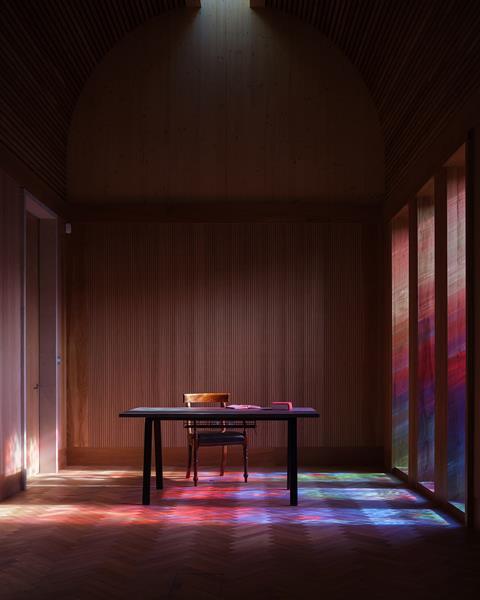
Lynch Architects’ sensitive renovation and extension of the Grade II listed Westminster Coroner’s Court provides dignified, efficient facilities that address the vulnerability of bereaved families and protects their privacy. The entry also includes Jankes Barn - a residential conversion of a cluster of three Grade II listed structures in Essex - and a renovation of a 19th century property in London’s Dalston.
Matthew Lloyd Architects
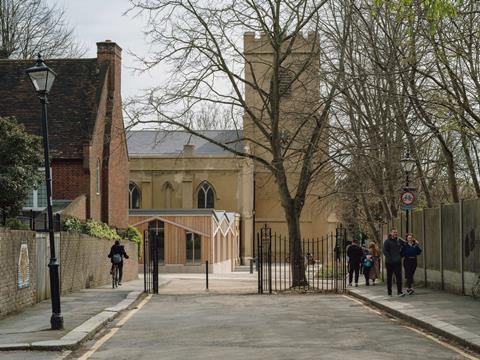
The practice seeks to ‘balance approachability and familiarity with innovation and joy, all without resorting to trend or pastiche’. Its submission includes two London churches. St Mary’s Walthamstow has been sensitively extended, and ill-considered alterations removed to celebrate historic features. In Belgravia, the ‘Pineapple Project’ creates a fully-accessible link between St Mary’s Church and the adjacent Presbytery. The entry also features a proposed hotel restoration on Southampton Row.
Michael Collins Architects
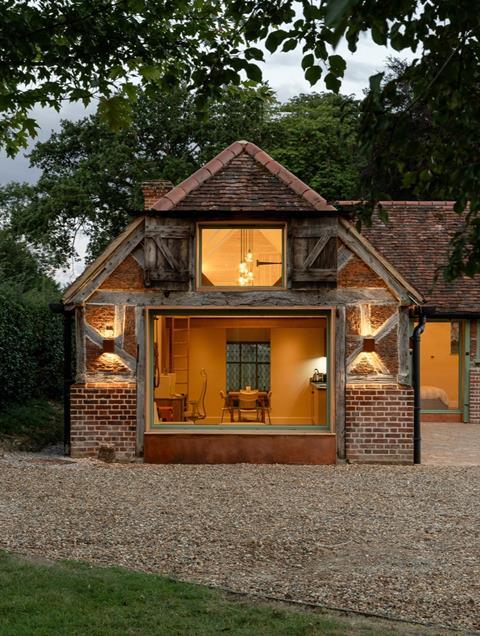
Based in Hertfordshire, the practice combines low energy design with an ‘uncompromisingly progressive’ approach to the adaptation of heritage. The entry includes two local projects. Elmside Lodge is a low energy restoration and extension of a 19th century property in Hitchin, while in rural Hertfordshire, the practice has converted a derelict Grade II listed stable into a recording studio, retaining the stable doors as shutters.
Purcell
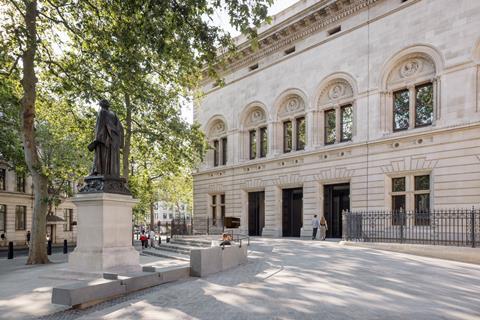
Purcell’s entry spans historic through to modern. At Newcastle Cathedral, the practice installed new underfloor heating and heat pump technology – a first for a Grade I listed cathedral. In London, it creatively refurbished the Victorian-era National Portrait Gallery with Jamie Fobert Architects, and adapted the dilapidated Boston Manor House into a community asset and creative hub. At St Anthony’s College in Oxford, Purcell restored the Hilda Besse Building, designed in 1971 by Howell, Killick, Partridge and Amis.
TaylorHare
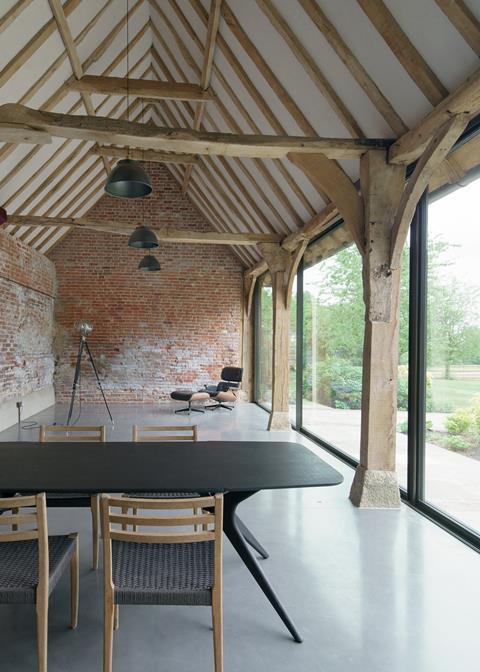
The Canterbury practice describes its approach as carefully peeling back layers of history and combining old with new to deliver buildings that work for their occupants today and tomorrow, while honouring the building’s past. At The Hall in Kent, TaylorHare restored a 16th century Grade II* house and outbuildings that had previously been compromised by unsympathetic additions. The entry also features three unbuilt projects including a proposed brewery in a 19th century farm estate setting.
Postscript
The Architect of the Year Awards are on Wednesday, 16th October 2024 at The Brewery, 52 Chiswell Street, London, EC1Y 4SA.
Book your place here.
















No comments yet